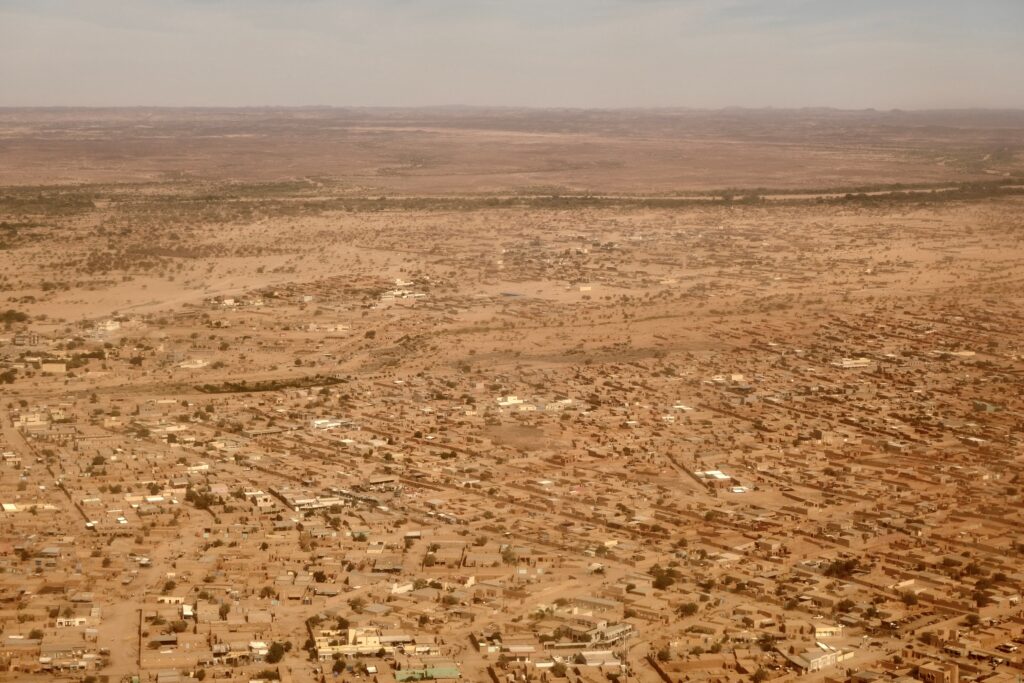Jihadists are assumed to be behind the recent kidnapping of a Swiss woman in Niger, the latest in a series of abductions in the volatile country, analysts say.Large tracts of the west African state are in thrall to armed groups linked to Islamic State (IS) or Al-Qaeda, with the security risk heightened by the recent departure of the US military.The 67-year-old woman, identified only as Claudia, was abducted late Sunday in the central city of Agadez, where an Austrian woman, Eva Gretzmacher, was also taken three months ago.Agadez is a UNESCO world heritage venue and historical city once at the crossroads of regional trade.But the current security situation has seen tourism shrink to almost nothing and the ministry has warned against travel to Niger given the “very high risk of abduction across the country”.- Kidnapping method -Although nobody has claimed responsibility, the kidnappers’ method bears the hallmarks of previous cases linked to jihadist groups, said Seidik Abba, president of the International Center for Studies and Reflections on the Sahel region.”Unknown individuals appear, carry out the kidnapping, place the hostage in a vehicle, then head out of the city,” he said.”This method suggests intermediary groups carry out the kidnapping then sell the hostage to a terrorist group, in this case the Islamic State, or that the groups themselves infiltrate the city and carry out the kidnapping.”Several observers told AFP they believed the Islamic State in the Sahel (IS) was behind the recent kidnappings.The victims include Gretzmacher, 73, taken on January 11, and four Moroccan truck drivers abducted on January 18 on the road between Dori in northeastern Burkina Faso and Tera in western Niger.- Kidnapping ‘subcontractors’ -The kidnapping of Claudia, married to a Nigerien citizen, “is in line with these recent hostage-takings in the Sahel,” Wassim Nasr, a researcher with the Soufan Center research group and a journalist specialising in jihadist movements, told AFP.Nasr noted that Islamic State had issued a call for kidnappings of Westerners on its behalf.Agadez “is not a region under the influence of Islamic State” and hence the abductions of Claudia and Gretzmacher “are the work of subcontractors of terrorist groups,” said journalist Ibrahim Manzo Diallo, director of Agadez-based media group Air-Info.Nasr says a similar method was used in the January abduction of a Spaniard on the Mali-Algerian border. He was released days later.His kidnappers, Algerians and Malians in their twenties, were unable to transfer the hostages to IS following “significant pressure from Algeria” and the intervention of rebels and Tuareg tribal leaders in northern Mali, Nasr said.- ‘Logistical system’ -The Al-Qaeda affiliate Group for the Support of Islam and Muslims (JNIM) has denied any link to the abductions of Gretzmacher or the Spaniard.The group, Nasr said, has claimed it “no longer abducts Western nationals since releasing in February 2024 three Italians” who were captured in Mali in May 2022.He added that the group still holds two Russians linked to the paramilitary group Wagner, kidnapped in Niger in July 2024.If Islamic State carried out the latest kidnappings “then this means there has been a change in their approach as the group was not really in the business of hostage-taking. It was above all JNIM which was involved in that,” said Yvan Guichaoua, a researcher at the Bonn International Centre for Conflict Studies.”That means Islamic State (now) has a logistical system to deal with hostages, because it’s quite complicated — they have to be moved regularly, their health has to be taken care of, they need to be fed and there have to be people on hand to monitor them,” Guichaoua added.For Abba, the latest abduction leaves a big question mark over the state of security in Agadez, where attackers can abduct people then “evade all surveillance mechanisms” even though the Nigerien army recently reinforced its positions in the city.Amid the insecurity, Niger’s military junta demanded the departure of the US military, which closed its drone base in Agadez in March 2024.Since then, “jihadist groups have had freedom of action because there is no longer effective aerial surveillance,” said Nasr.
